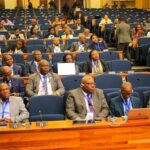During election periods, citizens in Africa exercise their democratic right to choose leaders who will represent them. However, it is essential to ask: Are these leaders fulfilling the promises they made during campaigns? Do citizens benefit from their choices?
For many years, it has been evident that political promises in some African countries are often short-term, addressing social, economic, and political issues, but their implementation is frequently lacking.
While many leaders strive to address the challenges faced by their citizens, the main hurdles include resource shortages, the influence of personal interests, and, in some countries, political instability affecting good governance.
In some African nations, leaders face political and social challenges that require political stability and cooperation from all sides.
While some leaders have managed to bring about positive change, others have been seen as failing to deliver on their promises, leading to frustration and a lack of trust from the citizens.
A good example can be found in sectors like healthcare and education, where significant challenges remain. Leaders who promise to improve healthcare and education services lead citizens to expect better and more accessible services.
However, many African countries still struggle with shortages of doctors, medical supplies, and teachers, while governments fail to effectively implement essential policies.
Also Read:Tanzania’s Industrial Growth Hits 5.5% in Q3 2024
Additionally, promises to improve the economy and reduce poverty are frequently made during campaigns. But due to unemployment, corruption, and poor infrastructure, the implementation of these policies faces numerous obstacles.
At times, citizens find themselves living in difficult conditions despite the promises of their leaders.
In some nations, the consequences of leaders failing to deliver on their promises directly impact the well-being of society. Citizens feel that their leaders’ promises benefit only a few, while many others remain poor and live in dire conditions.
This situation often leads to dissatisfaction and political unrest.
However, there are positive examples on the continent where leaders have managed to fulfill their promises and improve the lives of citizens.
For instance, some African leaders have succeeded in making significant progress in transportation infrastructure, healthcare, and education, while also introducing anti-corruption programs and strengthening government accountability.
The big question is are African leaders fulfilling the demands of citizens after election? While some leaders are making efforts to fulfill their promises, there are significant challenges that need to be addressed carefully.
Citizens need to see tangible results from the promises made to restore their faith in their governments.


